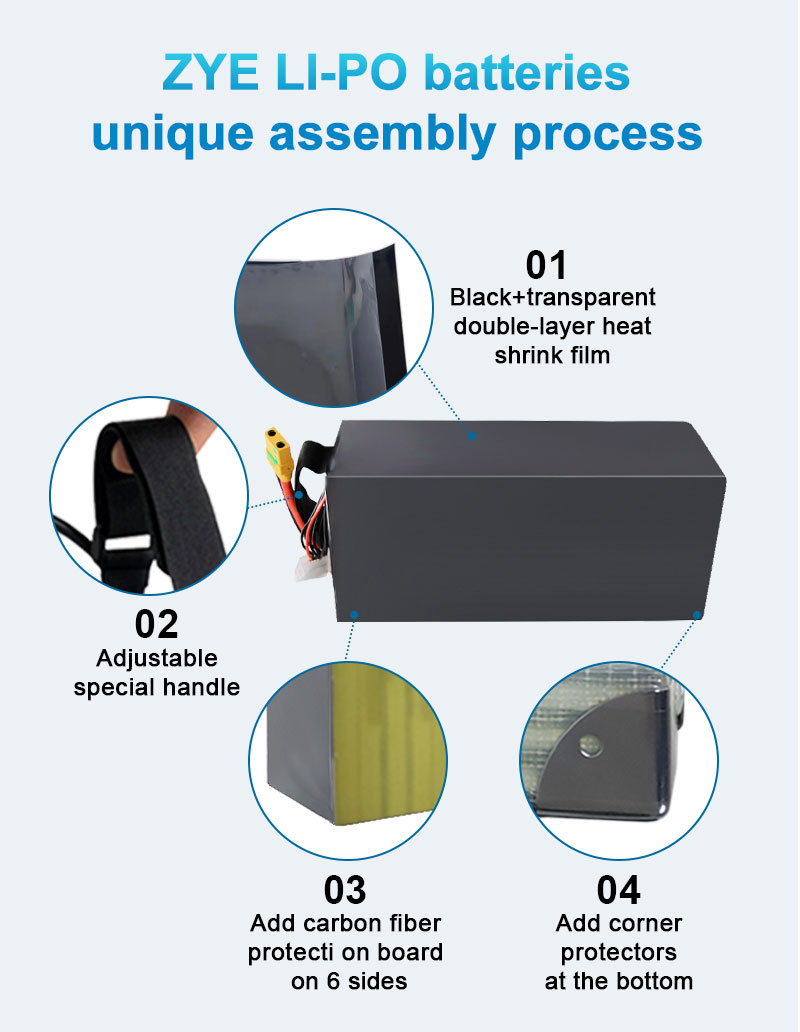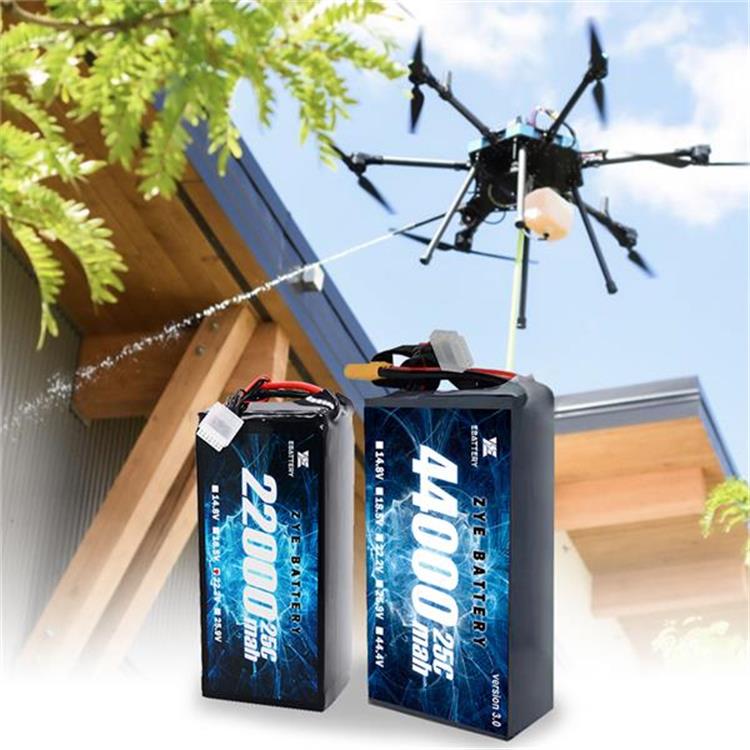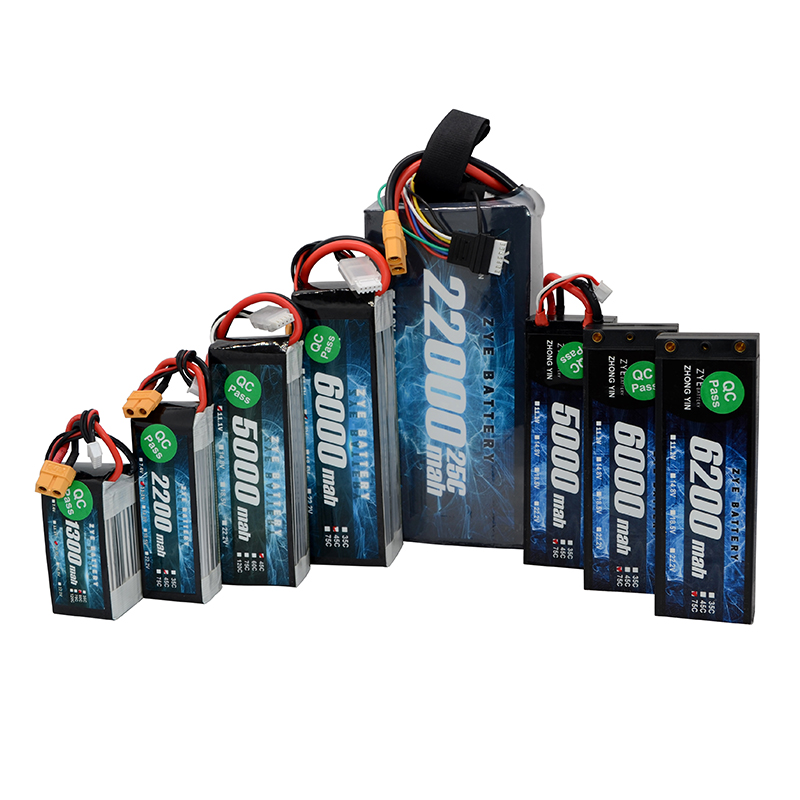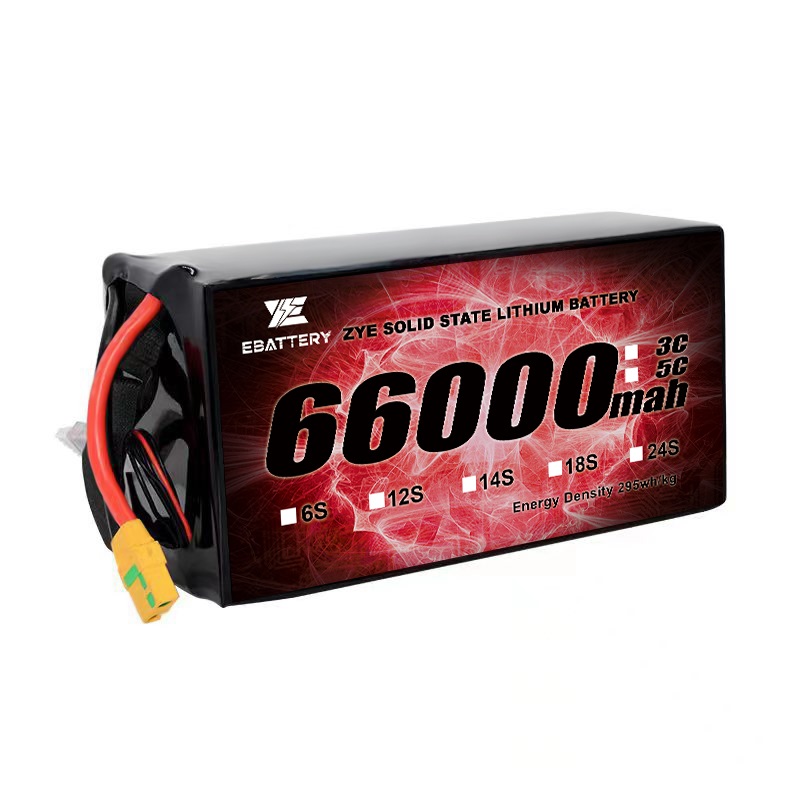How to store Lipo batteries?
2025-08-04
Lithium polymer (LiPo) batteries are widely used in various electronic devices, from smartphones to drones. One common question that arises among users is how to store different lipo batteries.
In this article, we'll explore this topic in detail, and provide valuable insights on safe storage and usage practices.

Optimal Temperature for Storing lipo-battery
When it comes to storing LiPo batteries, temperature plays a crucial role in maintaining their longevity and performance. The ideal storage temperature for lipo battery packs typically ranges between 15°C to 25°C (59°F to 77°F). This temperature range helps preserve the battery's chemical stability and prevents accelerated degradation of its components.
Storing LiPo batteries at temperatures below 0°C (32°F) can lead to several issues:
1. Reduced capacity and performance
2. Increased internal resistance
3. Potential damage to the battery's structure
4. Shortened overall lifespan
While it's not recommended to store LiPo batteries in extremely cold conditions for extended periods, short-term exposure to cold temperatures during transport or use is generally acceptable. However, it's crucial to allow the battery to warm up to room temperature before use or charging.

How to Safely Store a lipo-battery
Proper storage is crucial for maintaining the safety and longevity of lipo battery. Here are some essential tips to ensure safe storage:
Temperature control: Store your LiPo batteries in a cool, dry place with a temperature range between 40°F and 70°F (4°C to 21°C). Avoid extreme temperatures, as they can damage the battery cells and increase the risk of fire.
Charge level: Before storing, discharge your battery to approximately 3.8V per cell, or about 40-50% capacity. This voltage level helps prevent cell degradation and reduces the risk of swelling.
Use a LiPo safe bag: Invest in a fireproof LiPo safe bag to store your batteries. These bags are designed to contain potential fires and protect surrounding areas.
Inspect regularly: Check your stored batteries periodically for signs of damage, swelling, or unusual odors. If you notice any issues, dispose of the battery safely.
Keep away from conductive materials: Store your LiPo batteries away from metal objects or conductive surfaces to prevent short circuits.
Avoid direct sunlight: Sunlight can cause temperature fluctuations and potentially damage the battery cells. Store your batteries in a dark, cool place.
By following these storage guidelines, you can significantly reduce the risk of lipo-battery catching fire when not in use. However, it's essential to understand the common causes of LiPo battery fires to further enhance safety measures.

Conclusion
The optimal storage temperature for lipo battery packs and other LiPo batteries is between 15°C to 25°C (59°F to 77°F). Cold temperatures can significantly impact battery performance, capacity, and longevity. Regular monitoring and proper care are essential for ensuring the safety and longevity of LiPo batteries in all environmental conditions.
If you're looking for high-quality LiPo batteries that can withstand various environmental challenges, consider exploring our range of products at ZYE.
For more information or to discuss your specific battery needs, please don't hesitate to contact us at coco@zyepower.com. Our team of experts is ready to help you find the perfect battery solution for your requirements.
























































